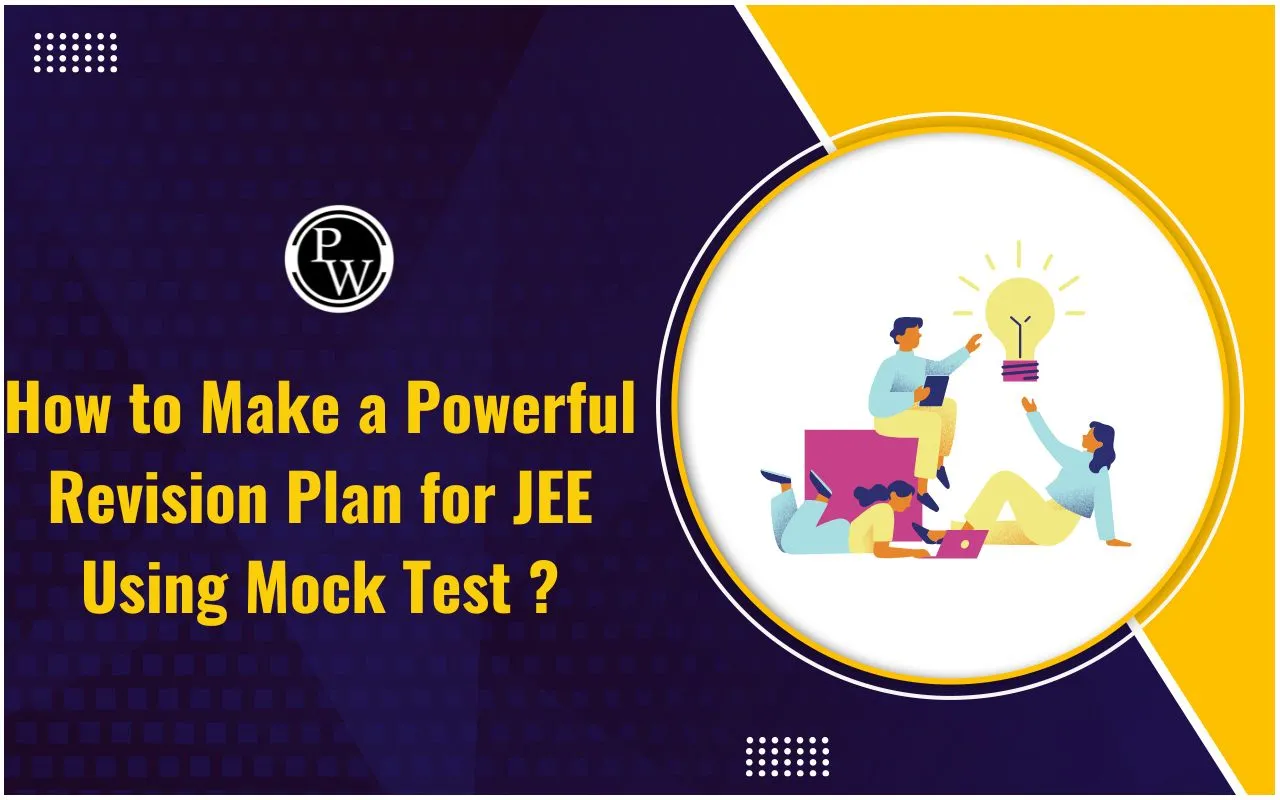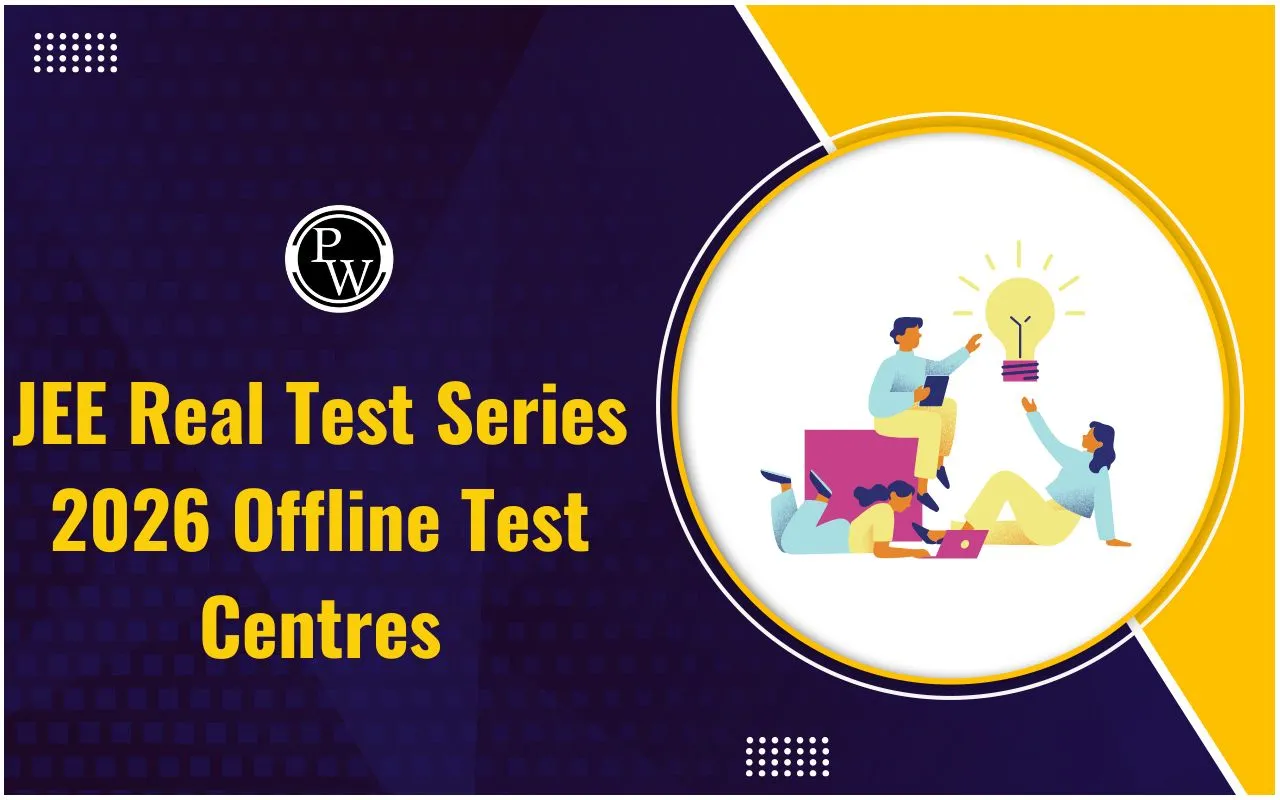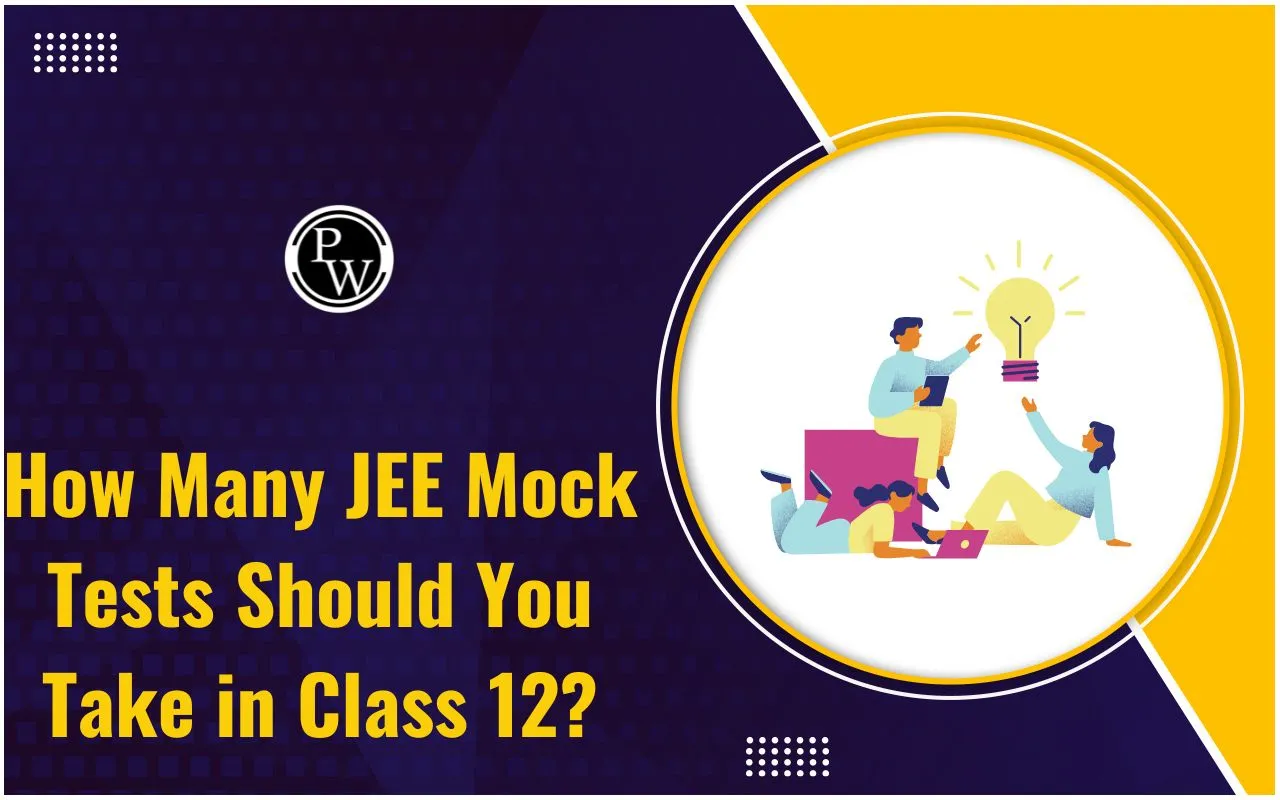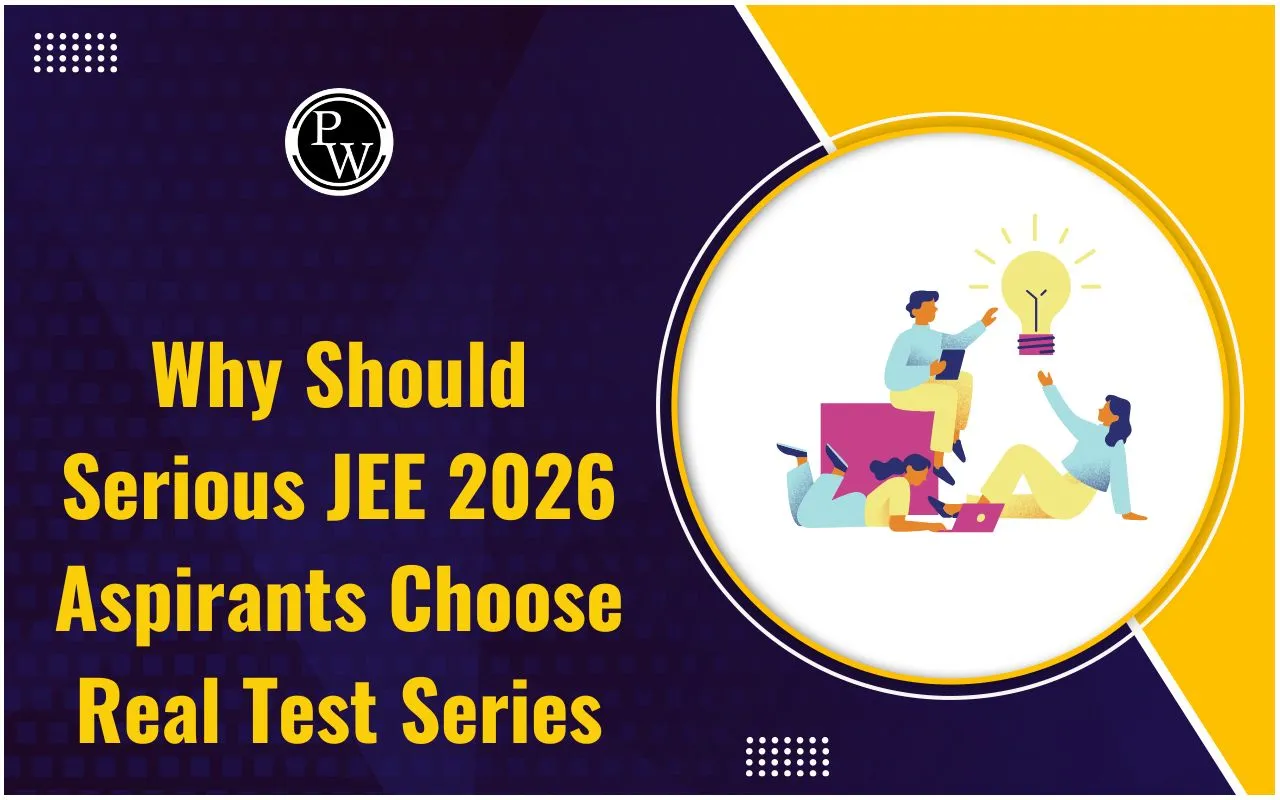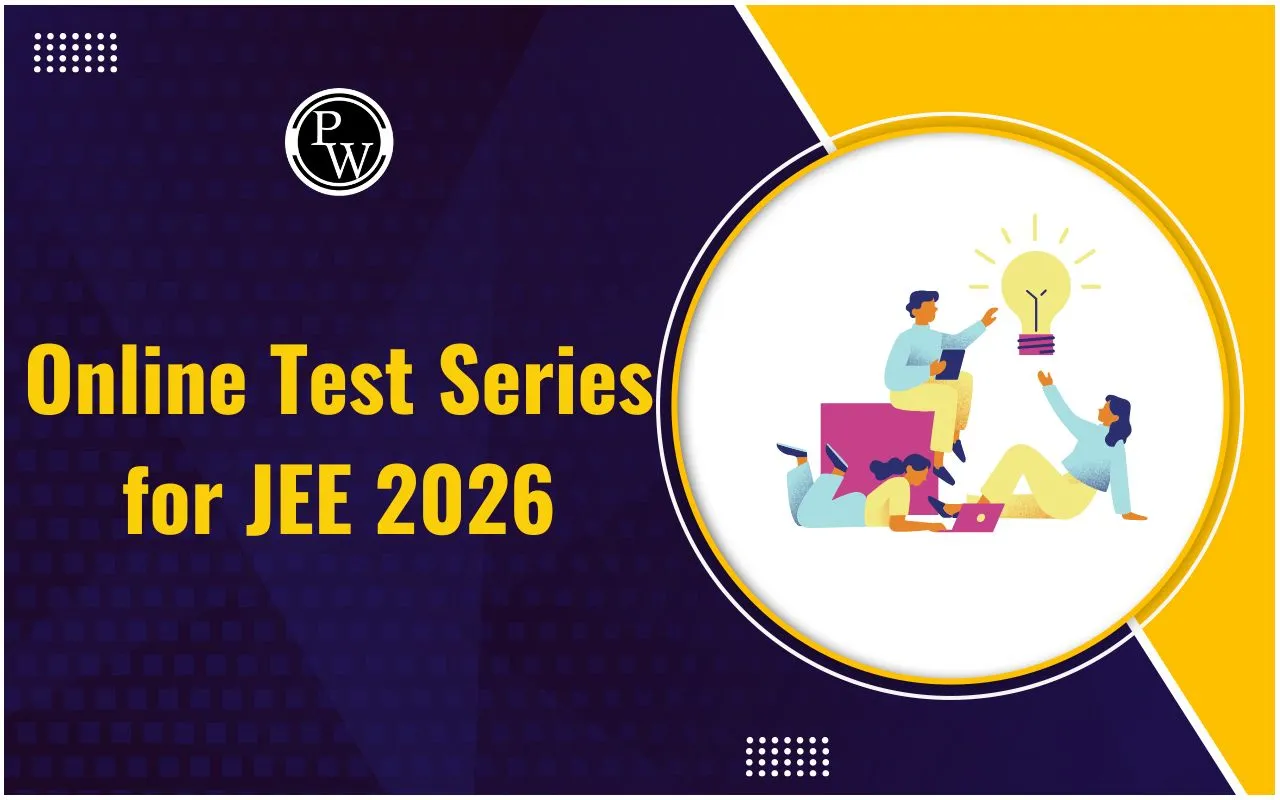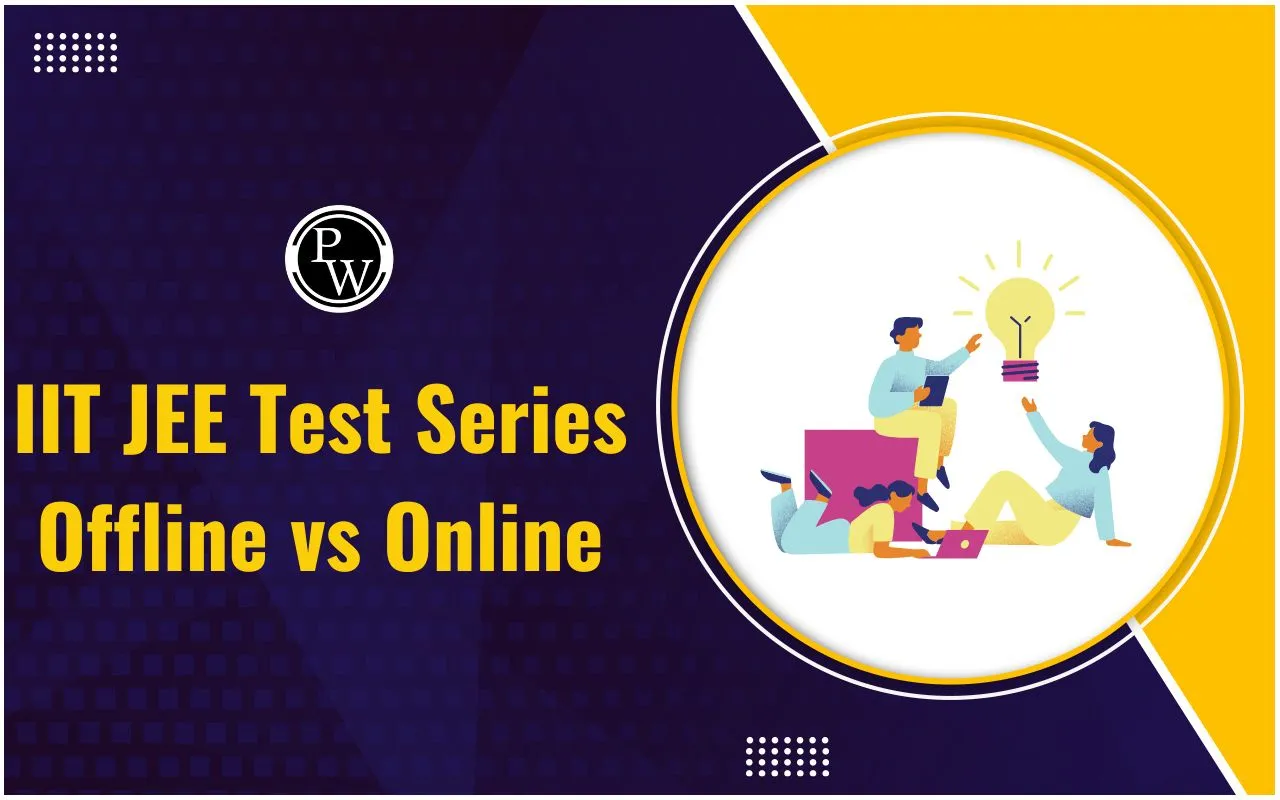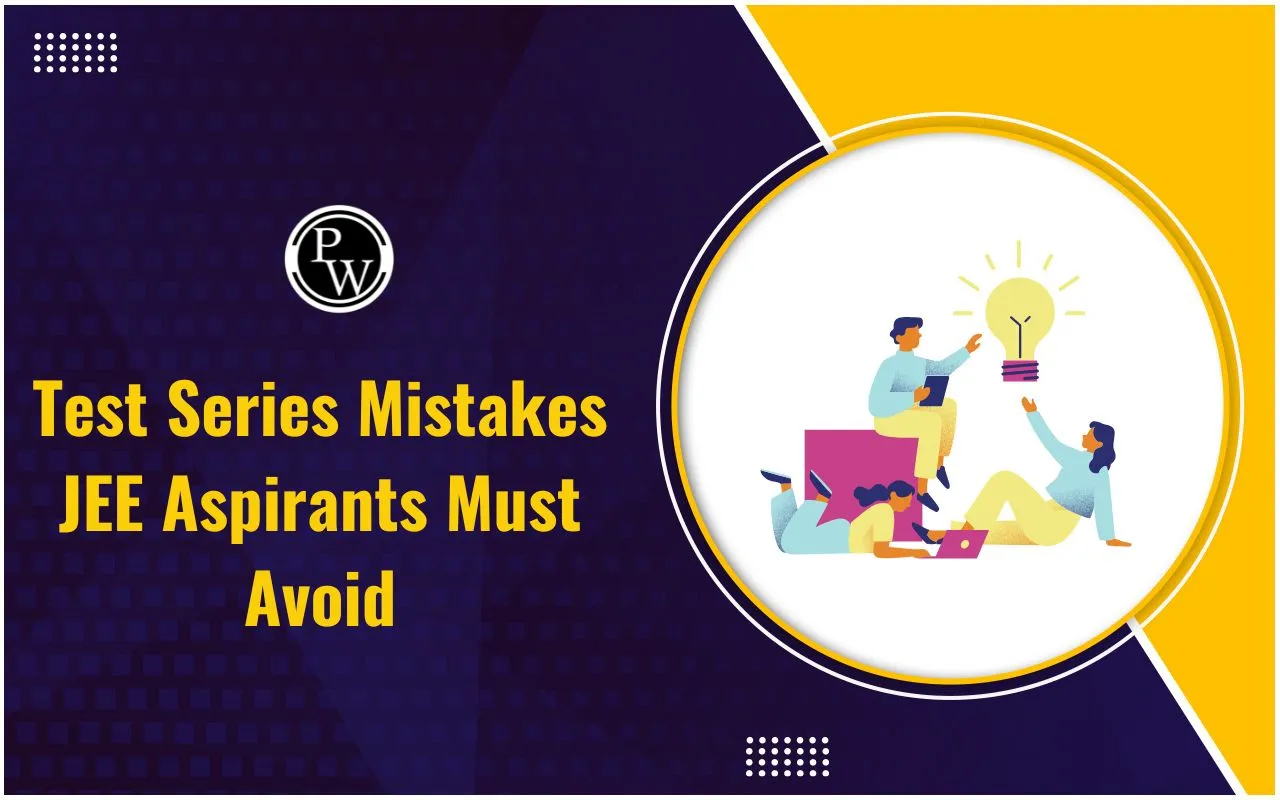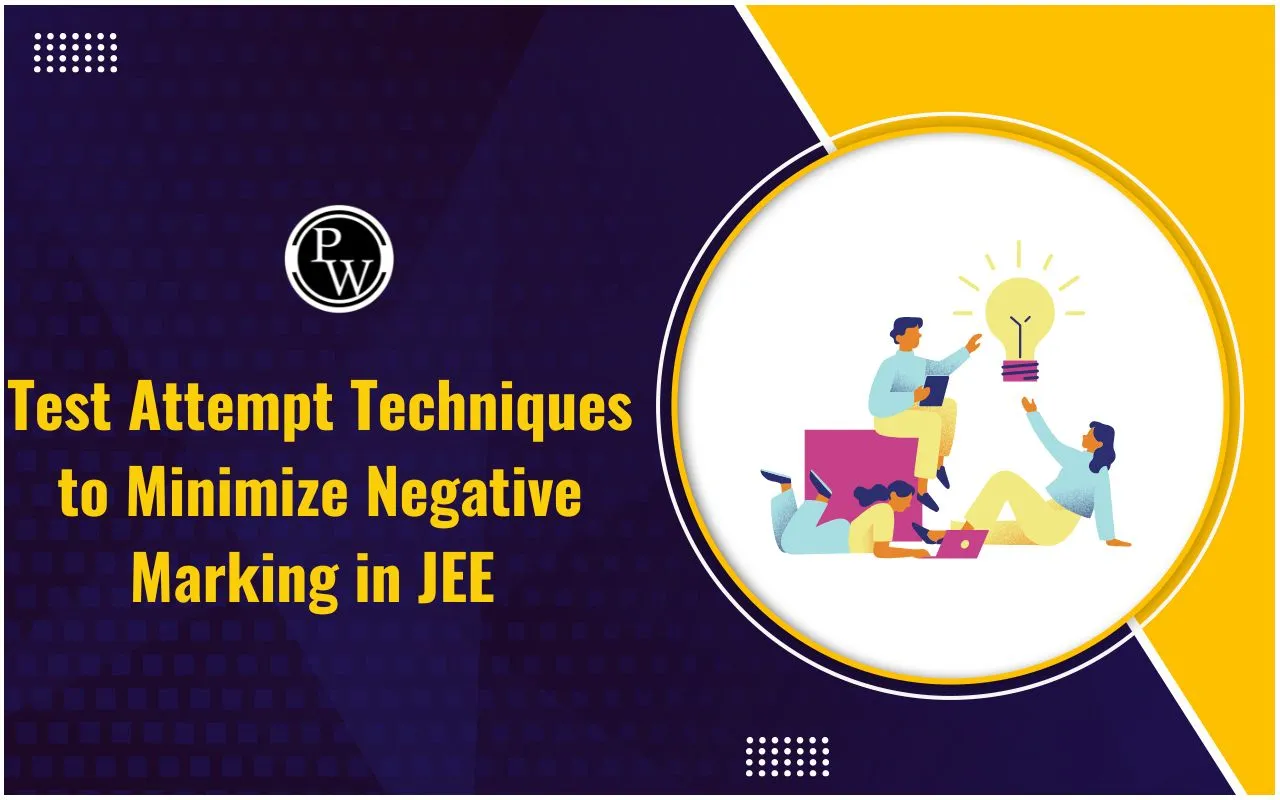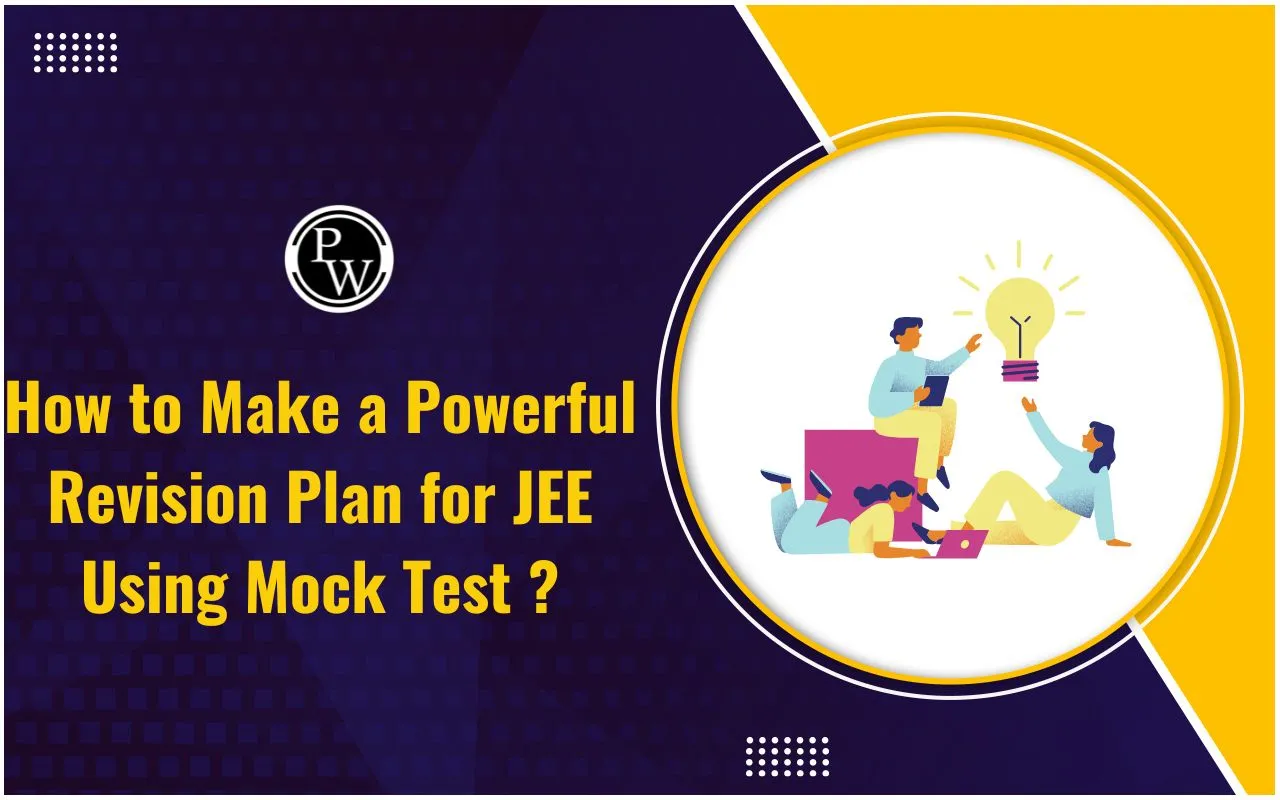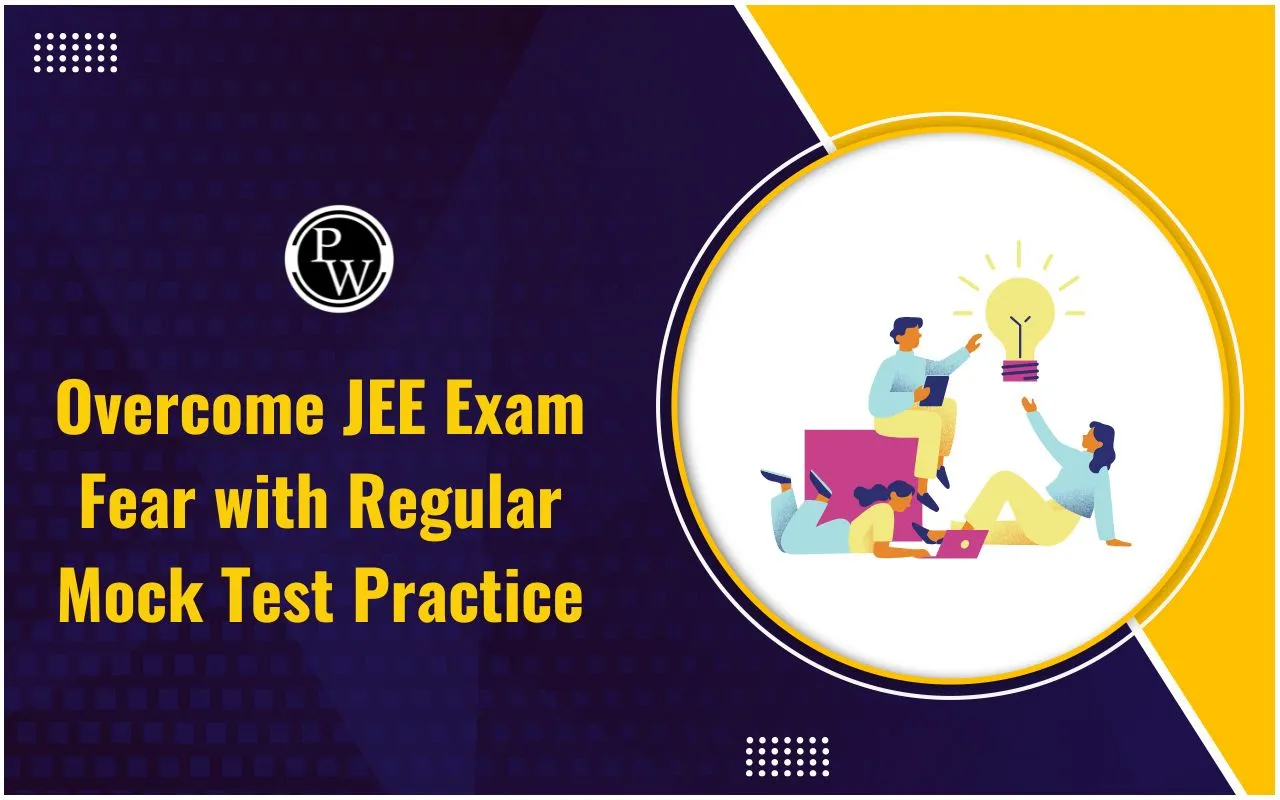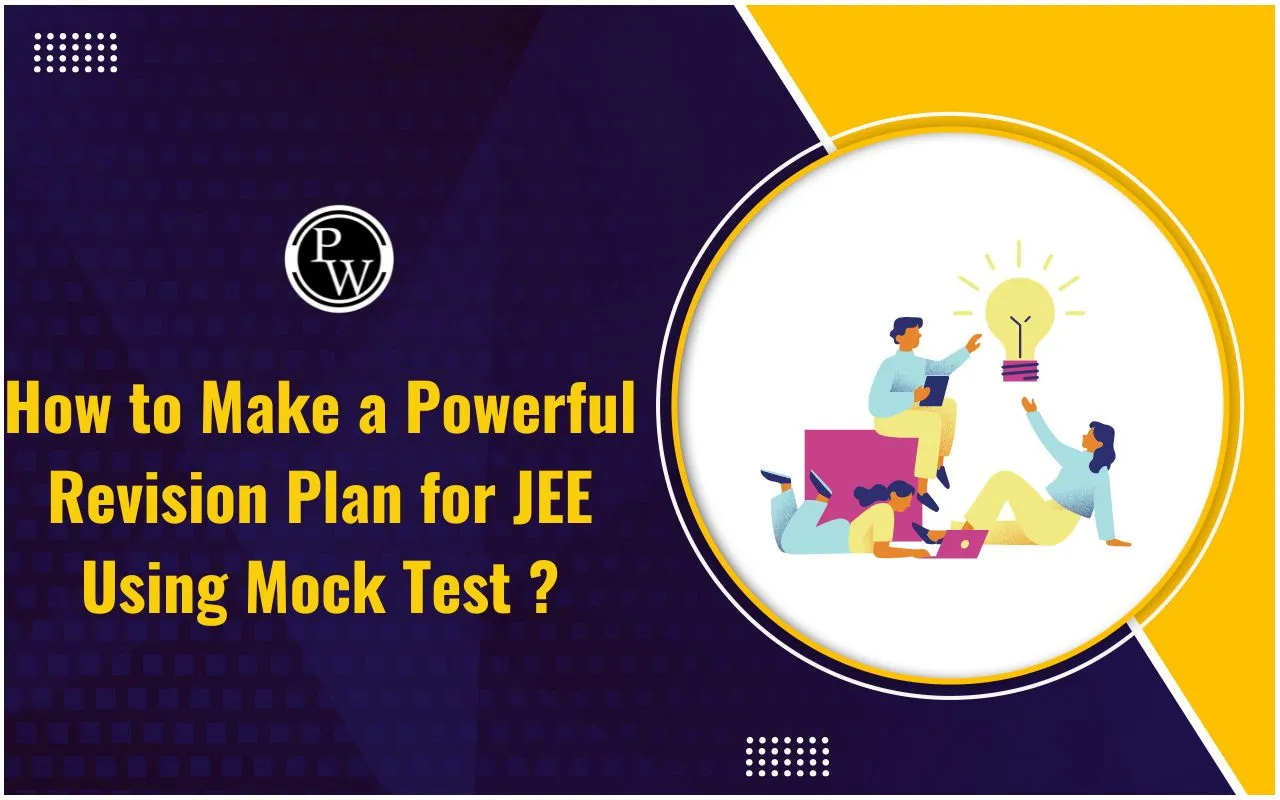
How to Make a Powerful Revision Plan for JEE Using Mock Test : Cracking the IIT JEE requires more than just hard work—it demands a smart and structured revision plan. One of the most powerful tools to enhance your preparation is mock test analysis. The IIT JEE Real Test Series 2026 by Physics Wallah offers students the chance to regularly experience real exam-like conditions through offline tests conducted across India.
By consistently analyzing your performance in these mock tests, you can:
- Identify weak areas that need focused revision
- Improve time management across all sections
- Minimize silly mistakes through repeated practice and awareness
A mock test-based revision strategy not only highlights your learning gaps but also helps turn them into strengths, boosting both your confidence and performance ahead of the final IIT JEE exam.
Also Check : Fee Structure Of PW REAL Test Series For JEE
Importance of Mock Tests for IIT JEE Exam Preparation
Mock tests are a vital part of every IIT JEE aspirant’s journey, serving as the bridge between learning and actual performance. The IIT JEE Real Test Series 2026 by Physics Wallah, conducted at offline centres across India, allows students to:
-
Practice in real exam-like conditions
-
Improve speed, accuracy, and time management
-
Build strong exam temperament
-
Detect and fix common mistakes
These tests go beyond simple practice; they are a powerful tool to measure progress, fine-tune strategies, and boost overall readiness for the IIT JEE exam.
Why Mock Test Analysis Matters for IIT JEE Revision
Revising for the IIT JEE exam without analyzing your performance is like trying to solve a puzzle in the dark. Many students fall into the trap of revisiting only the topics they’re comfortable with. As a result:
-
They keep revising familiar chapters instead of addressing weak ones
-
Ignore recurring mistakes in certain topics
-
Repeat silly errors without realizing the root cause
That’s where jee mock test analysis becomes a game-changer. By reviewing your performance in every mock test, especially your accuracy, time spent per section, and error patterns, you gain clear insight into what’s working and what’s not.
A data-driven approach to IIT JEE exam revision helps you:
-
Boost your confidence by turning weaknesses into strengths
-
Identify and fix actual learning gaps instead of just revising blindly
-
Align your preparation with real exam patterns and difficulty levels
With the right mock test analysis, you're not just studying—you’re preparing smarter for success in the IIT JEE exam.
Identifying Silly Mistakes vs Conceptual Errors in IIT JEE Mock Tests
While preparing for JEE, it's crucial to understand the difference between silly mistakes and conceptual errors, especially during mock test analysis. Silly mistakes usually stem from carelessness, like calculation slips, incorrect unit conversions, or misreading questions, despite knowing the correct method. On the other hand, conceptual errors arise from a lack of clarity in fundamental topics or a misunderstanding of the core concepts.
The IIT JEE Real Test Series 2026 by Physics Wallah provides repeated practice in real exam settings, helping students recognize these patterns. With every test attempt, aspirants can pinpoint whether a lost mark was due to a minor oversight or a deeper issue in understanding, allowing them to revise more effectively and improve accuracy with targeted effort.
Also Check : Online Test Series For JEE
Tracking Strong and Weak Chapters for IIT JEE Using Mock Test Data
A major advantage of solving regular mock tests, like those in Physics Wallah’s IIT JEE Real Test Series 2026, is that they help you clearly see which chapters you're confident in and which ones consistently drag your score down. These offline tests, held in real exam-like settings across 180+ centres, provide an honest picture of your subject-wise performance.
By analyzing your results after each test, you can recognize patterns, both strengths and problem areas, and build a smarter, data-driven revision strategy. Maintaining an error log of frequently wrong chapters further sharpens your focus, ensuring you spend more time where it's truly needed.
Focusing on High-Weightage Topics with Frequent Errors in IIT JEE
Not all topics in JEE carry equal weight, and not all mistakes hurt your score equally. That’s why a smart revision plan should start with ranking your topics based on two factors: how often you make mistakes in them and how important they are in the actual exam. The IIT JEE Real Test Series 2026 by Physics Wallah gives you the data you need to do just that.
By identifying high-weightage chapters for jee where your accuracy is low, you can allocate more focused revision time. This approach helps you correct frequent errors in scoring-heavy topics, boosting both accuracy and rank without unnecessary effort.
How to Analyze IIT JEE Mock Papers in Just 2 Hours
Finishing a mock test is just the beginning; what truly sharpens your JEE preparation is the post-test analysis. To make the most of every attempt in the IIT JEE Real Test Series 2026 by Physics Wallah, students must follow a focused 2-hour analysis routine.
Start by revisiting each incorrect or skipped question to identify the reason: was it a conceptual error, calculation mistake, or poor time management? Then, mark the topics where you lost maximum marks and categorize them for immediate revision. Also, evaluate the time spent on each section to adjust your strategy for the next test. This targeted analysis helps reduce repeated errors, improve accuracy, and gradually boost overall performance in a time-efficient manner.
Also Check : Role of offline Test series in JEE Preparation
Building a Weekly IIT JEE Revision Calendar from Mock Data
Creating a weekly revision calendar using mock test data is a smart move for every JEE aspirant. With the IIT JEE Real Test Series 2026 by Physics Wallah offering regular offline tests across India, students receive consistent performance feedback. By reviewing your mock test scores, error patterns, and time management issues each week, you can set focused revision goals.
For example, if you consistently lose marks in Organic Chemistry or make silly mistakes in Math calculations, dedicate specific slots in your weekly calendar to revise those topics, solve targeted problems, and reattempt similar mock questions. This methodical approach ensures you don’t just study hard, but revise smartly, leading to continuous progress in the lead-up to the final exam.
Why Reattempting Wrong Questions is Crucial for IIT JEE Success
Reattempting incorrect questions is a crucial step in JEE preparation, especially while using mock tests like those in the IIT JEE Real Test Series 2026 by Physics Wallah. Many students lose marks not because they lack knowledge, but due to small, avoidable errors. By revisiting and reattempting the questions they got wrong, students can pinpoint the exact nature of their mistakes be it conceptual gaps, calculation errors, or misinterpretation of questions. This reflective practice not only strengthens their understanding but also trains their brain to avoid repeating the same errors in the actual JEE exam. Over time, this habit boosts accuracy, improves confidence, and greatly enhances performance under real exam pressure.
How to Make a Powerful Revision Plan for JEE Using Mock Test ? FAQs
Why are mock tests important for IIT JEE exam preparation?
How can mock test analysis help improve my IIT JEE revision strategy?
What is the difference between silly mistakes and conceptual errors in the IIT JEE exam?
How do I identify strong and weak chapters for the IIT JEE exam?
Why is it important to focus on high-weightage topics with frequent mistakes in the IIT JEE exam?

